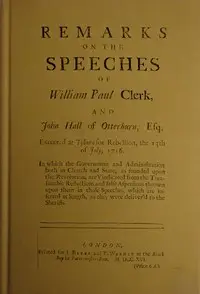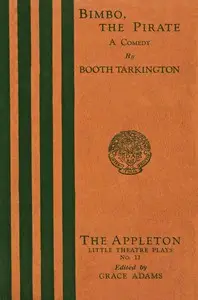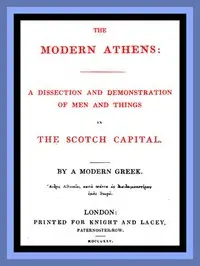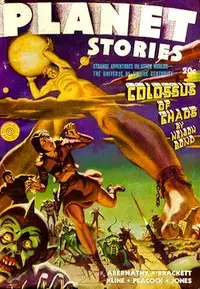"The Friendly Daemon, or the Generous Apparition" by Daniel Defoe is a narrative non-fiction work written in the early 18th century. The book recounts a miraculous cure experienced by Dr. Duncan Campbel, a famous deaf and dumb gentleman, who claims to have been healed by a familiar spirit appearing to him in the guise of a boy in a white surplice. This intriguing account explores themes of supernatural assistance, healing, and the blurred lines between faith and reason. In this narrative, Dr. Campbel shares his harrowing experiences with a debilitating illness characterized by frequent convulsions, which left him unable to communicate normally. After enduring years of suffering and unsuccessful treatments, he is visited by a spirit who provides him with a secret cure involving a loadstone and a specially prescribed powder. Campbel's subsequent recovery enables him to return to his practice, leading him to assist others afflicted by similar ailments. His story raises questions about the intersection of physical healing and spiritual phenomena, ultimately suggesting that remedies may sometimes come from unexpected, mysterious sources. (This is an automatically generated summary.)
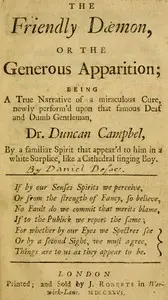
The Friendly Daemon, or the Generous Apparition Being a True Narrative of a Miraculous Cure, Newly Perform'd Upon That Famous Deaf and Dumb Gentleman, Dr. Duncan Campbel, by a Familiar Spirit That Appear'd to Him in a White Surplice, Like a Cathedral Singing Boy
By Daniel Defoe
"The Friendly Daemon, or the Generous Apparition" by Daniel Defoe is a narrative non-fiction work written in the early 18th century. The book recounts...
Daniel Defoe was an English novelist, journalist, merchant, pamphleteer and spy. He is most famous for his novel Robinson Crusoe, published in 1719, which is claimed to be second only to the Bible in its number of translations. He has been seen as one of the earliest proponents of the English novel, and helped to popularise the form in Britain with others such as Aphra Behn and Samuel Richardson. Defoe wrote many political tracts, was often in trouble with the authorities, and spent a period in prison. Intellectuals and political leaders paid attention to his fresh ideas and sometimes consulted him.


